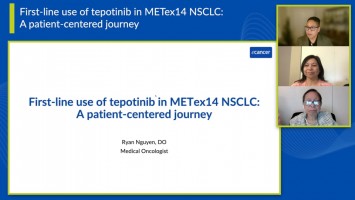TW: Generally in routine clinical practice no formal geriatric assessment is done prior to decision making because it is very time consuming and it is easy to practice without geriatric assessment. However, the geriatric patients are also not represented well in the clinical trials and hence it is very difficult to extrapolate the results of clinical trials into routine practice for elderly patients. So before implementing a treatment plan for the elderly patients, other factors like life expectancy, functional status, mortality risk from comorbidities and the risk of disease progression or recurrence are considered in clinical practice.
However, managing older patients with breast cancer is complex. Hence treating patients solely based on clinical judgement can either lead to under- or over-treatment. That is why geriatric assessment using validated geriatric tools or scales is very helpful to capture deficiencies or vulnerabilities in different health domains. In this study we have tried to utilise shorter geriatric assessment tools for patients who were registered at the hospital for seeking breast cancer treatment.
What was the study design?
TW: This was a prospective study which was done to predict one-year mortality in older breast cancer patients who were more than or equal to 65 years. We had used different geriatric assessment tools. Generally the gold standard, which is the Comprehensive Geriatric Assessment tool, is a very time-consuming process and it is not possible to implement it routinely in clinical practice. Hence we used three shorter available tools for geriatric assessment and those were Multidimensional Prognostic Index, Geriatric Aid Tool and Onco-Multidimensional Prognostic Index.
We had done a single-time assessment at the index visit when all the considered patients who were registered at the hospital for seeking breast cancer treatment were screened and accrued in the study. We captured all the demographics as well as the clinical data, along with the treatment history, to study the compliance rate to the treatment as well as correlate them with one-year mortality.
What were the results of your study?
SS: The median age of the study cohort was 70 years. 22% of the patients were metastatic and 98% of them were female. The treatment completion rate in the cohort was 75%; one quarter of the patients did not start the treatment or left it incomplete. We found that one-year mortality at a median follow-up of 19.3 months was 12%. The proportion of patients under the moderate and severe risk category under Onco-MPI were 85% and under MPI were 7.7%. We did not see any survivor difference between these groups compared to the mild category group for both of them.
Coming to the Geriatric Aid score, 15% of them had the lower scores and it was seen to be statistically significant. So when we did a multivariate analysis we analysed different prognostic factors, among which the cancer stage, treatment compliance, the molecular subtypes and the Geriatric Aid score predicted the one-year mortality and were found to be significant.
What do you think is the significance of these results?
SS: We saw that neither MPI or Onco-MPI helped us to predict the mortality in this exclusive cohort of breast cancer patients. The best tool was found to be the Geriatric Aid. Hence, I conclude that we should look for more cancer site specific tools for geriatric assessment.
Do you have any closing comments?
SS: If we compare the study with the previous studies like the original study by Brunello et al, as well as the study which has been done in the Indian group of patients by Iqbal et al, both have been published. So we saw that there was a difference between the study population in terms of gender, cancer stage, as well as the site of primary. So maybe that is why our results have not come significant as it was seen in these two studies.
Do you have any comments regarding this study?
TW: My final conclusion from this study was that we have used the same tools that have been reported in literature and they have been found to be predictive but this was not the case when we analysed the same tools in a homogenous cancer site. That is the study was done only in breast cancer patients and we did not have any distribution of male versus female because 98% of our patients were ladies.
Despite having more patients in the high risk group according to the MPI and Onco-MPI, there was no correlation with survival. So this suggests that we need to have a more India-specific or cancer-specific tool that will be meaningful and which can be also reproduced in other cancer sites. So when we are running geriatric assessment we have to also take the cancer site as one of the important factors and also see what are the causes of death. So if more patients that are dying because of disease and that is not the case actually in breast cancer patients because patients do survive for a longer time, even metastatic patients do survive for a longer time. Hence, it is important to develop cancer site specific as well as tools that take into cognizance the socioeconomic and the demographic profile of the patients and it can vary from country to country.
This brings me to make another point that we are going to run a study with a tool called SCOPE-C which has been developed by one of the expert geriatricians from AIIMS Delhi and this tool we would be validating against the Comprehensive Geriatric Assessment. We are about to start with this study in the near future. Thank you.








